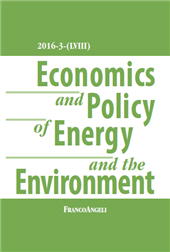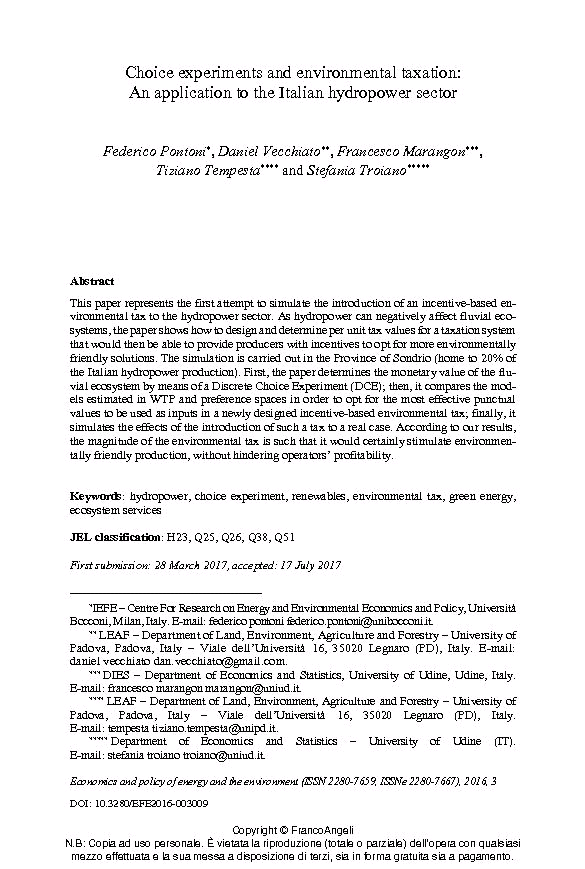Choice experiments and environmental taxation : an application to the Italian hydropower sector
99-118 p.
The use of improved water sources could affect households' welfare in the form of better health quality. The number of households that have access to piped water, an acknowledged type of improved drinking water sources, is very low in Indonesia due to low investment in water infrastructure. For poor households, access to piped water is essential as the ability to pay for other kinds of clean water is weak. This study aims to examine the impact of the use of piped water on households' welfare by looking at the difference between the welfare score of households that are connected to piped water and that of those who are not. The two groups are selected using Propensity Score Matching (PSM) method.
The study employs Central Bureau of Statistics household survey data in South Tangerang City, Banten Province. The result shows that the welfare of piped water consumers is significantly higher than the non-consumers. To expand the program, we recommend that the government should put more effort to make drinking water with pipeline distribution system more accessible to poor households by subsidizing them. [Publisher's Text].
Forma parte de
Economics and Policy of Energy and Environment : 3, 2016-
Artículos del mismo número (disponibles individualmente)
-
Información
Código DOI: 10.3280/EFE2016-003009
ISSN: 2280-7667
KEYWORDS
- Hydropower, choice experiment, renewables, environmental tax, green energy, ecosystem services



